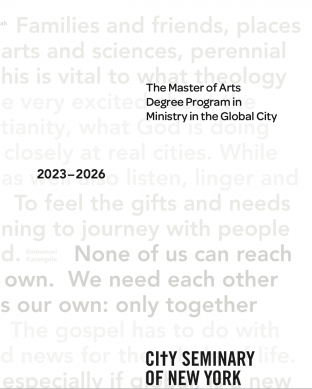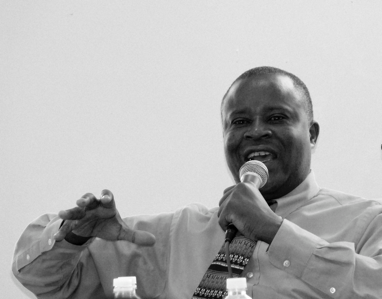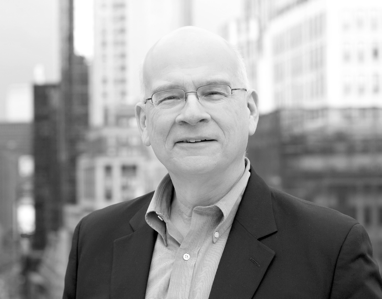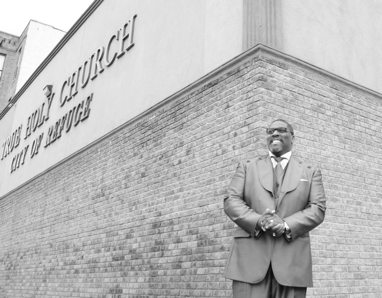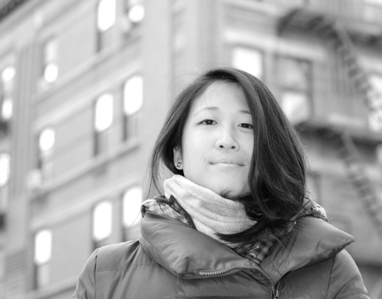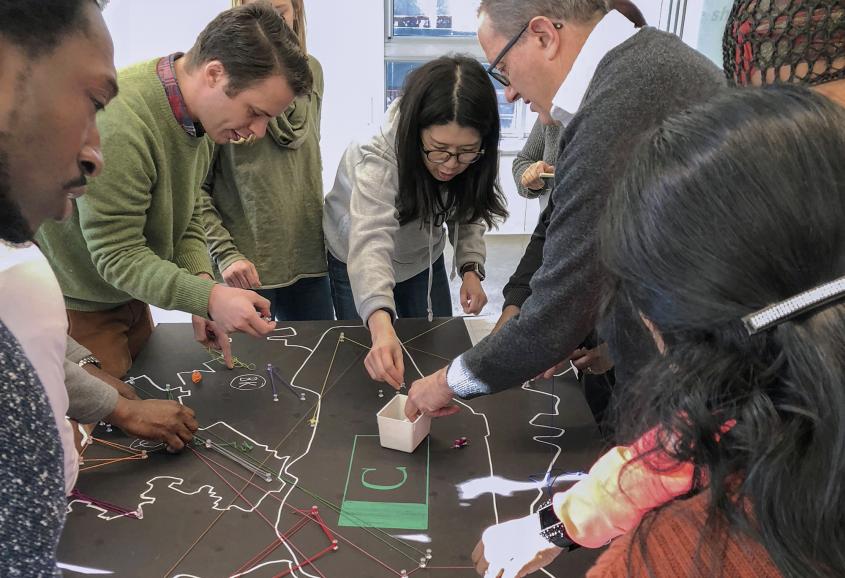
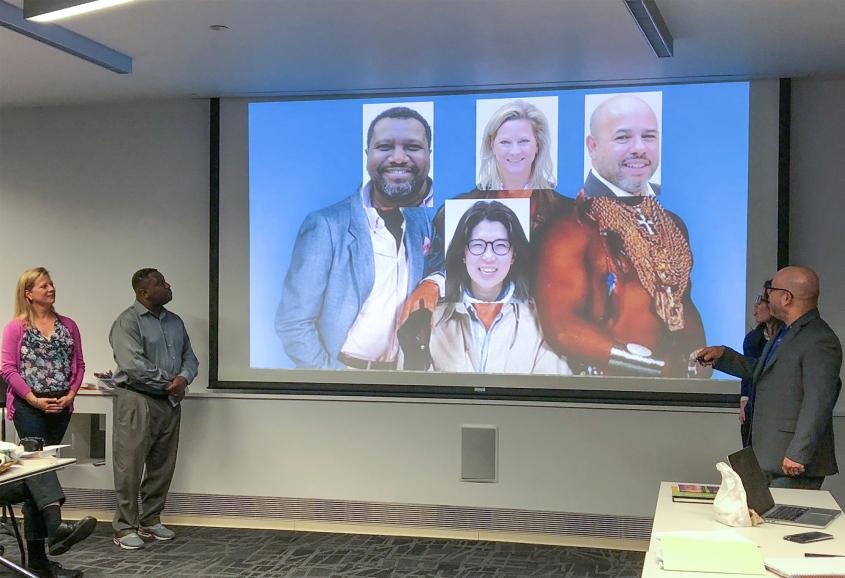
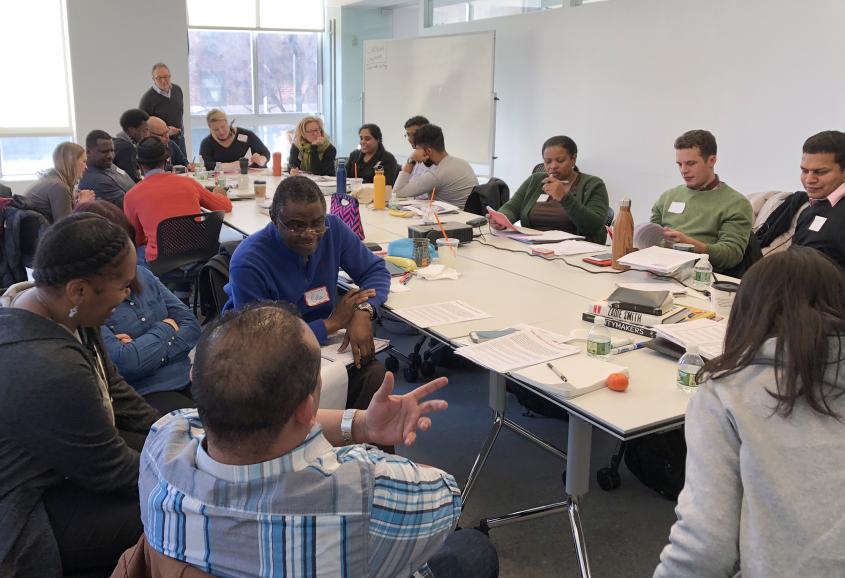
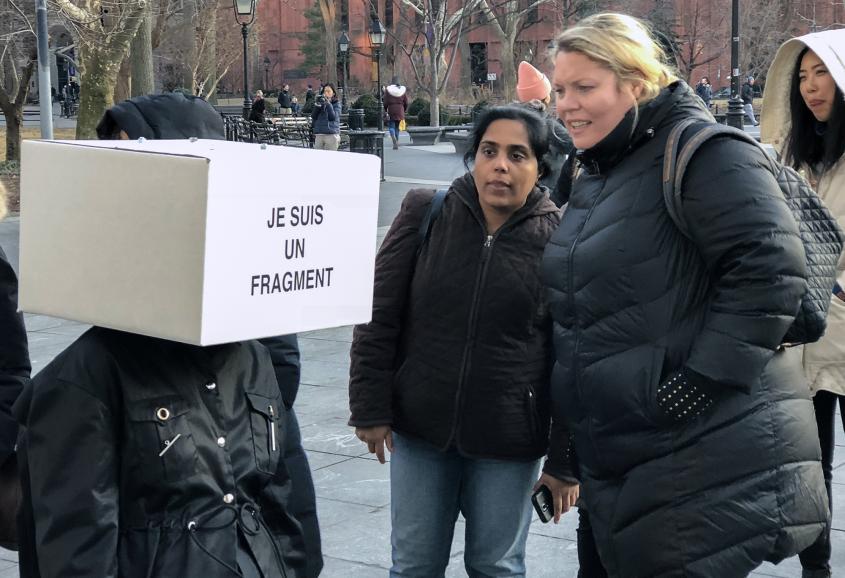
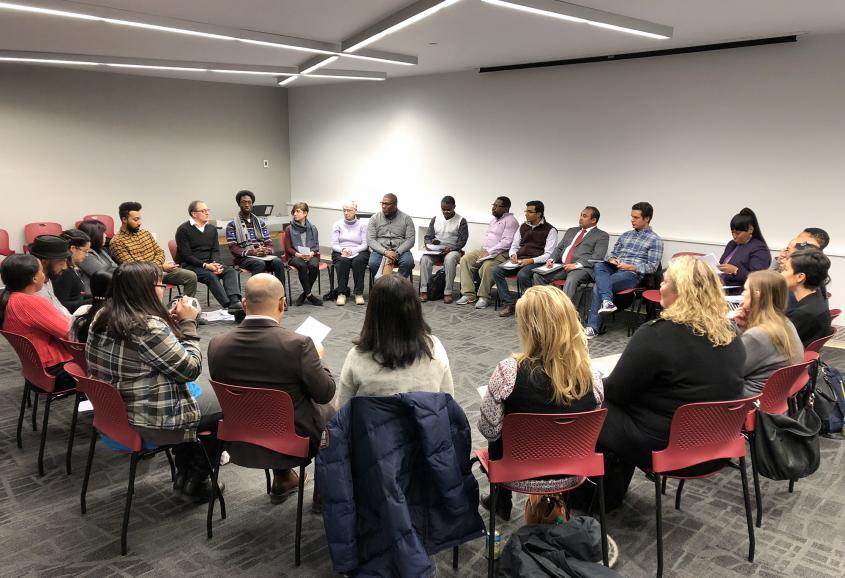
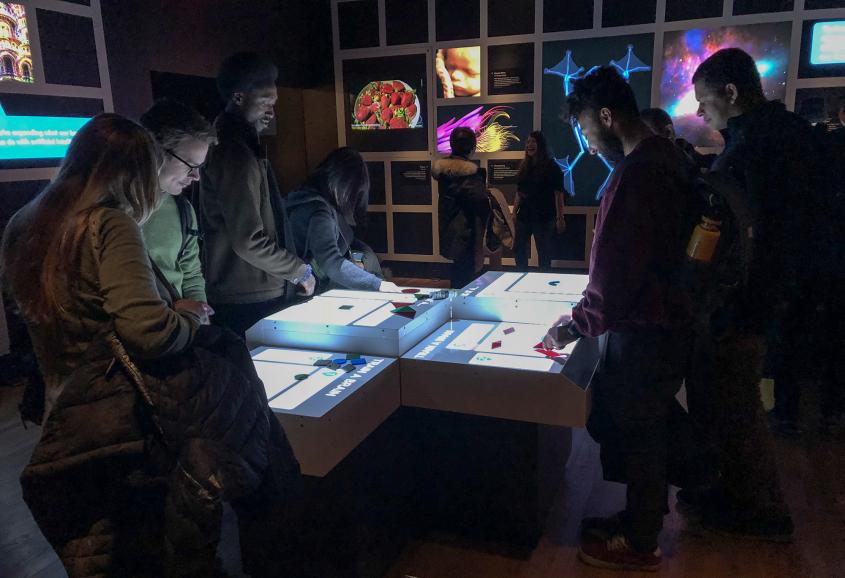
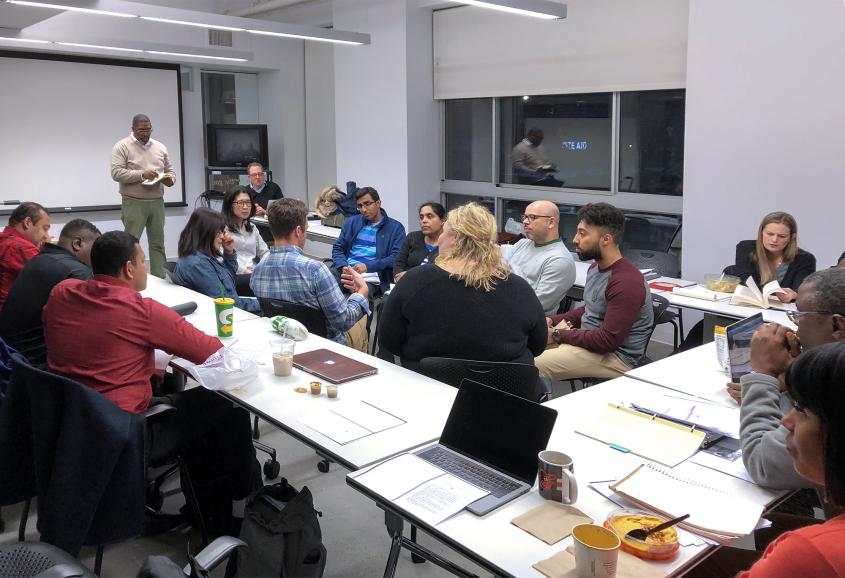
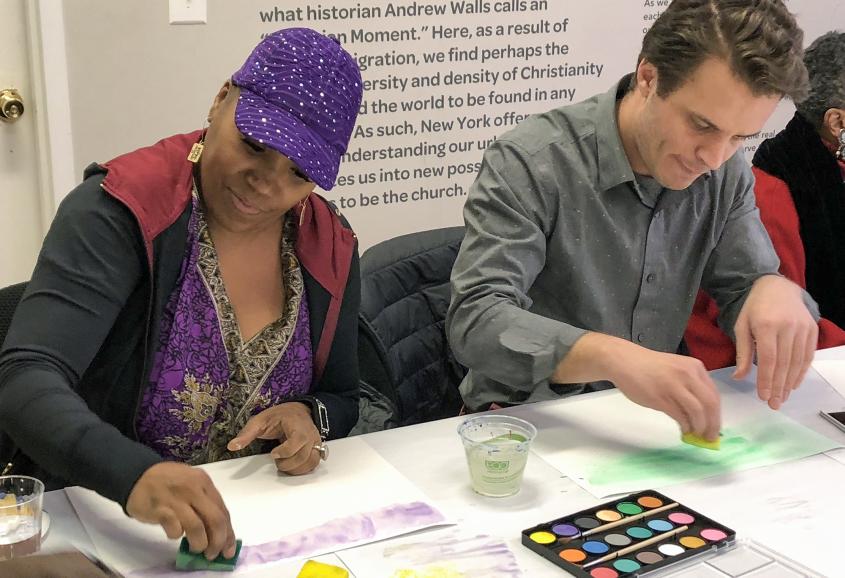
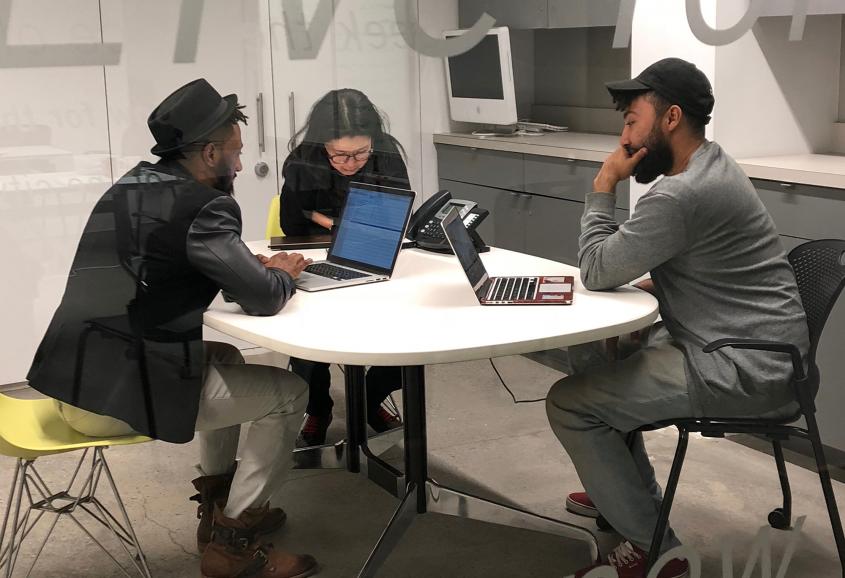
The Master of Arts in Ministry in the Global City is an integrative program of Biblical and theological reflection, prayer, and community that serves as a gateway to a lifetime of ministry in an urban world. As we understand it, ministry takes place not just in the church but also across all areas of life, and for the flourishing of the city. Nor is ministry just for "pastors"—it involves every member of the church in every area of life. This is especially true today, as new connections are being made between work, ministry, and mission. Working in community, students are able to deepen their calling to a life in God, the work of the local church, and the peace of the city by developing the skills, ways of seeing, knowledge, and practices for a life of service to Christ in an urban world.
Program Summary
The MA is organized around four key questions that we believe will help shape a lifetime of ministry:
WHERE AM I IN THE CITY?
What does my location reveal about the challenges, opportunities, and hopes of our time? How am I shaped by my location, and how am I to work for God’s peace and hope in this context? What is ministry in an ever-changing city?
HOW AM I BEING FORMED FOR THE WORK OF THE GOSPEL IN THE CITY?
How do prayer and the Scriptures provide a foundation and new imagination for life and ministry? What am I seeing and hearing that is new? How do I live a life of worship in the city?
HOW ARE WE TO FOLLOW CHRIST EVERY DAY OF THE WEEK?
How does the whole church express its many callings? What does it mean to live in Christ in the everyday, to be faithful at work, school, and home? How is this seeking the peace of the city as public faith?
HOW AM I A PART OF CHRIST'S CONTINUAL TRANSLATION INTO NEW CULTURES AND CONTEXTS?
How is my community and church a part of this ongoing story of one people from many languages, cultures and places? How does this draw us and me more deeply into God? How do theology and culture relate?
A nexus is a connection or a series of connections that links a group or things. Each nexus is central and connected to the other. The core nexus of the Master of Arts in Ministry in the Global City are organized around these four areas: Location, Formation, Vocation, and Translation.
LOCATION: Wayfinding in our Urban World
This nexus focuses on understanding the role of location or context for ministry. In particular, what does it mean that the city, with its underlying dynamics, complexities, gifts, and histories, is our context? Starting with how we bodily engage the city through our senses, this nexus brings together urban theory, Biblical reflection, comparative history, and tools for research, providing a foundational perspective for understanding and serving in an urban world.
FORMATION: Praying with the Word
In this nexus, we emphasize how the overarching Scriptural narrative and prayer form us for life in the Gospel, individually and as communities. This is a dynamic process that helps us continually think through our call to God's mission. Formation is foundational for sustaining a vibrant faith and vision for ministry in the city, and is both individual and communal.
VOCATION: Following Christ in Every Area of Life
This nexus seeks to develop an integrative theology and spirituality for our everyday lives in the city, Monday through Saturday. The goal is to think and work theologically and biblically around the spheres of public life, family, community, and work in the global city. All areas of life belong to Christ, and all areas of service occur in the Spirit by the whole people of God.
TRANSLATION: Moving with the Spirit
In this nexus, we see how as Christ is formed in a community, the church is yet one people drawn together from all languages and people. As Andrew Walls indicates, theology is seeking to live and think in Christian ways, in every language and thought form, as Christ is formed in every community. While looking at all six continents, this nexus particularly explores how the Christian movement has been appropriated in Africa, Asia, Latin America, and the Caribbean, and how this dynamic has come to be expressed in New York City. At heart, this is a theological framework that draws us more deeply into God and the movement of the Spirit.
Because the program is taught as a thematic whole, each course and nexus provides a way to take what is being learned forward, and to make connections to other courses and nexus. The program opens with "Leadership and Learning," which emphasizes how we come to learn, understand, and lead in an uncertain, turbulent world. The program then moves into core areas of understanding location and context, individual and community formation in Scripture and prayer, application in vocation and life, and an appreciation of the larger Church and the translation of the Gospel into multiple languages, cultures, and peoples. Area seminars enable students to focus and deepen an area of practice, such as pastoral ministry, community development, the arts, or youth work. The Capstone project, which is creative and constructive, is intended to build on this area of emphasis and to bring the program components together for the church and the city. The colloquium will meet as a final integrative course, reviewing the program and what has been learned, and engaging in the process of considering future plans for ministry.
RESEARCH AND THE ARTS
The Walls-Ortiz Gallery and Center, named for Andrew Walls and the late Manuel Ortiz, ministry practitioners and scholars in world Christianity and urban missions who continue to be key forces in the life of City Seminary, is our space for research, public dialogue, and interaction with the arts. It is a community space for conversation, for telling stories, for visualizing and engaging faith, and for new questions and unexpected appreciations.
We extend welcome not only to the seminary community and visitors, but also to our Harlem and NYC community—individuals and organizations of and for all ages —that breathe life into our everyday interactions and learning. Students have the opportunity to conduct research or pursue creative projects and to display their work in the Gallery, or in the Hope Campus Lobby gallery space. Student learning is also enriched by City Seminary research initiatives, including the Next Generation Research Project, studying faith transmission in immigrant communities, the Practices of Ministry in the City Project, and the Global New York Church Project.
Curriculum Overview
Program Orientation
0.1 Learning and Leadership (2 credits)
Nexus 1 – Location: Wayfinding in our Urban World
1.1 Sensing the City (3 credits)
1.2 Urban Pilgrimage (3 credits)
1.3 The First Urban Churches and Today (2 credits)
Nexus 2 – Formation: Praying with the Word
2.1 Formation in Scripture A (2 credits)
2.2 Formation in Scripture B (3 credits)
2.3 Prayer and Discernment (2 credits)
Nexus 3 – Vocation: Following Christ in Every Area of Life
3.1 Families, Youth, and Friendship (2 credits)
3.2 Work and Vocation (2 credits)
3.3 Public Faith (2 credits)
Nexus 4 – Translation: Moving with the Spirit
4.1 Bodies of Prayer: Learning about World Christianity in the City (2 credits)
4.2 Our Story: A World of Christianity (2 credits)
4.3 World Christianity through Literature and the Arts (2 credits)
Area Seminars (choose one)
5.1 Pastoral Ministry (2 credits)
5.2 Youth Ministry (2 credits)
5.3 Arts and Media (2 credits)
5.4 Community Ministry (2 credits)
5.5 Counseling (2 credits)
Capstone: Project and Colloquium
6.1 Capstone Project A, B, C, D (1, 1, 2, 2 credits respectively, 6 credits total)
6.2 Colloquium (2 credits)
Academic Calendar and Schedule
The Masters of Arts Degree Program in "Ministry in the Global City" is designed to be completed over 2.5 years, inclusive of three spring terms. In order to accommodate schedules, classes are held primarily in the evenings and on Saturdays. Participants will also need to commit to 1-2 one-week intensives per year over the course of the program. Please note that 1 credit hour is the equivalent of 15 classroom hours per term.
YEAR 1 | Summer 1 (4) + Fall 1 (4) + Winter 1 (1) + Spring 1 (6) | 15 credits |
YEAR 2 | Summer 2 (4) + Fall 2 (4) + Winter 2 (1) + Spring 2 (4) | 13 credits |
YEAR 3 | Summer 3 (4) + Fall 3 (4) | 8 credits |
TOTAL |
| 36 credits |
The academic calendar is as follows:
TERM | DATES | REGISTRATION | TUITION |
Summer 1 | June-July 2024 | June 1 | June 1 |
Fall 1 | Sept - Dec 2024 | Sept 1 | Sept 1 |
Winter 1 | Jan 2025 | Jan 1 | Jan 1 |
Spring 1 | Feb - May 2025 | Feb 1 | Feb 1 |
Summer 2 | June-July 2025 | June 1 | June 1 |
Fall 2 | Sept - Dec 2025 | Sept 1 | Sept 1 |
Winter 2 | Jan 2026 | July 1 | July 1 |
Spring 2 | Feb - May 2026 | Feb 1 | Feb 1 |
Summer 3 | June-July 2026 | June 1 | June 1 |
Fall 3 | Sept - Dec 2026 | Sept 1 | Sept 1 |
Graduation | Jan 2027 |
Assessment: Student Portfolios
Student portfolios are a way for students to reflect on program learning and applications to their ministry praxis, both in writing and in conversation with the faculty advisor, as well as for the faculty advisor to informally assess student progress. Portfolios are not graded, but the full assessment process must be completed before the student will be able to proceed to the next stage of the program. This is a time where faculty can assess if learning outcomes have been met or particular concepts may need to be revised in subsequent coursework.
In preparation for the review meeting with their faculty advisor, students will need to compile the following documents and upload them to the cohort Google Classroom platform at least one week in advance of the scheduled meeting. After the meeting, the faculty advisor will compose a summary of the meeting, including feedback for the student, and send an evaluation to the student. The evaluation will also be placed in the student's file.
